Sex In The Story 5: More Male Mythologies
Hoo-ahhh. Men apparently run the media, film, advertising, and comic-book industries. Men made Disney stop making movies with princess in their titles, even if the princess is from Mars. In science fiction and fantasy, men seem dominant. (Most notable exception: Christian fiction readers?)
I say this not to chest-thump, but because in this series, women face discrimination. Only one column discussed female caricatures. This is my second about male ones.
Intermittent inequalities like that may be inevitable. Men and women are different but equal, whether equal in their rebellion against God (Rom 3:23), or equal in their status as His adopted children (Rom. 8: 15-16).

Thanks for the coffee, yeoman.
Thus, in one era, women may be victims to over-veneration or else stereotyping, such as the infamous gals of the original Star Trek series. (Miniskirts! In space!)
Whereas in another era, people may get sick of it and decide it’s payback time. Now all our TV shows will be very original and stereotype men! (However, the first few Star Trek: The Next Generation episodes actually tried to put men in miniskirts. In space.)
Eventually, no matter which stereotypes each gender receives, either in nonfiction or in fiction, things even out. That’s no cause for stepping back and not rebutting stereotypes, but it’s also reassuring. So long as storytellers are writing about realistic people, with all their potentials, positives, and negatives, and not merely trying to build a new character machine that’s improved on an old model, more stories will have depth.
Still, many readers have personal gripes with caricatured males in fiction, a very diverse assortment of them — from the bumbling sitcom dad, to the evil business industrialist, to the bumbling and evil talk-radio host. On these we cannot now speak in detail. So let’s focus more on tropes with testosterone, or without it, in fantasy and sci-fi:
Stock males
 These guys stand around and aren’t very effective. They may be extras, or soldiers, or evil henchmen — has anyone ever employed evil henchwomen, after all? (But oddly enough, my evidently progressive word processor believes henchwomen is a word.)
These guys stand around and aren’t very effective. They may be extras, or soldiers, or evil henchmen — has anyone ever employed evil henchwomen, after all? (But oddly enough, my evidently progressive word processor believes henchwomen is a word.)
Perhaps we shouldn’t nitpick on these bulk-ordered blokes, though. Perhaps every story can’t make every single male character into a fleshed-out, four-dimensional human. But if we tried to find a male equivalent to the stock-female character who exists mainly to be eye candy, I think this would be it.
Examples: Video-game mini-bosses; armies recruited from villages; stormtroopers.
Gender-neutrals
Captain Jack Sparrow: (grimacing) “You’re not a eunuch, are you?”
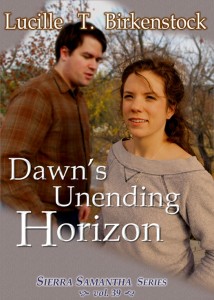
If the speculative thing doesn't work out, I can always turn to the Dark Side.
Without getting into that whole homosexuality issue, this male character is, from what I’ve read, prevalent in other fiction genres. He’s a man who behaves like a woman — or at least doesn’t directly show many characteristics, perhaps less-popular ones, intrinsic to men. He’s the kind of guy who stands on the cover of a prairie romance novel, in the background, looking just as forlorn as the main female character in the foreground. He’s an emotional guy. (Not gay!) Or he might be burying the pain of his past and need to find someone who can help him, perhaps a woman of like mind. (But not gay!)
However, I’ve also seen him in speculative novels. A prime example: The Guy Who Never Notices Women’s Bodies Below Their Necks. I’m not talking about rubbing-our-faces-in-it-to-be-Gritty lust descriptions here; rather, I’m talking about mentions of even Godly attraction, even to one’s own wife. Some speculative novels avoid this like Andorian plague. I’m looking at you, Left Behind series (which I otherwise still like).
This male caricature’s closest match might be the action-hero warrior woman I used to “kick off” (har!) this series. While that is a man in a woman’s body, this is the reverse.
Examples: Buck Williams, from the Left Behind series; that guy from the novel I won’t name who entered a parallel-world version of the Playboy Mansion but was apparently not tempted by what he saw (in fairness, this could have been publisher constraints).
Bad boys
 This one could result in a whole column on his own. Conversely, I’m not sure I even need to say much more beyond the label and a few examples. What is it about bad-boy characters that appeals to readers or viewers so much — especially women?
This one could result in a whole column on his own. Conversely, I’m not sure I even need to say much more beyond the label and a few examples. What is it about bad-boy characters that appeals to readers or viewers so much — especially women?
Examples:
- Tony Stark / Iron Man. Stan Lee was stunned at response to this “bad boy” hero. “Of all the comic books we published at Marvel, we got more fan mail for Iron Man from women, from females, than any other title,” he said. (Source.)
- Edward Cullen. Need I say more? Insert mocking “squee! he wants to suck my blood but stops himself because he loves me so much; how romantic!” comment.
- Richard Maxwell. Does anyone remember him? He was one of the less-frequent but most popular characters on the Christian radio drama Adventures in Odyssey, a teen hacker and henchman who eventually repented and sought forgiveness.
Closest feminine equivalent: the wily and seemingly “innocent” villain’s girlfriend, such as Harley Quinn from Batman: The Animated Series (who was herself preceded by vixens from older Batman comics and the 1960s TV series), who sometimes really wants to help the Caped Crusader, but inevitably returns to the villain’s side.
I wonder if some of the appeal of “bad boy” characters is not only a reaction against gender-neutral males, in stories or in reality, but a twisted attempt to imitate the ultimate God-Man Who is both loving and nurturing, and just and wrathful.
Men-children
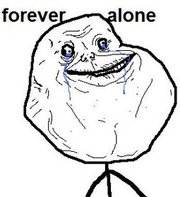 Though I don’t see these often in speculative stories, I include them here as a caution: there’s a chance that men-children may be in the audience of such stories. Yes, many people exaggerate the stereotype of slackers in their parents’ basements, who play their video games and accomplish little in their non-virtual lives. But they do exist. I’ve met them. I also can’t laugh very hard at the internet comics that either mock or bewail their existence. Yet I wonder: what if such a man-child was pulled into a real fantasy world? (Dibs.)
Though I don’t see these often in speculative stories, I include them here as a caution: there’s a chance that men-children may be in the audience of such stories. Yes, many people exaggerate the stereotype of slackers in their parents’ basements, who play their video games and accomplish little in their non-virtual lives. But they do exist. I’ve met them. I also can’t laugh very hard at the internet comics that either mock or bewail their existence. Yet I wonder: what if such a man-child was pulled into a real fantasy world? (Dibs.)
Feminine equivalent: Is there one? If there is, should I even say that word on radio?
Examples: Any “man” in a raunchy “comedy” film with a title in big red “funny” letters.
The Übermensch
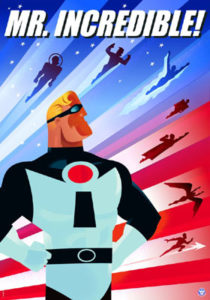 As more Christian men and women, in particular, wake up to the irritants of feminism-influenced characters, we will likely see more of these in our fiction: the ultimate man, a faith-based superman. He may have flaws, but eventually defeats evil, lives radically, recycles the money he spends on his little girl’s heart medication so he can donate more to world missions — from the cardboard box where he lives — and daily saves the day.
As more Christian men and women, in particular, wake up to the irritants of feminism-influenced characters, we will likely see more of these in our fiction: the ultimate man, a faith-based superman. He may have flaws, but eventually defeats evil, lives radically, recycles the money he spends on his little girl’s heart medication so he can donate more to world missions — from the cardboard box where he lives — and daily saves the day.
Last week, I quoted from a Christian movie in which a character could be seen as acting like this. But maybe we do need a few stories like this, before things begin to level off?
The Überwomensch would be the ultimate-homemaker or power-girl single woman.
Examples: Some guys from the above-mentioned movie (possibly!); potential future Christian fiction.
Prophesied Heroes™ (part 2)
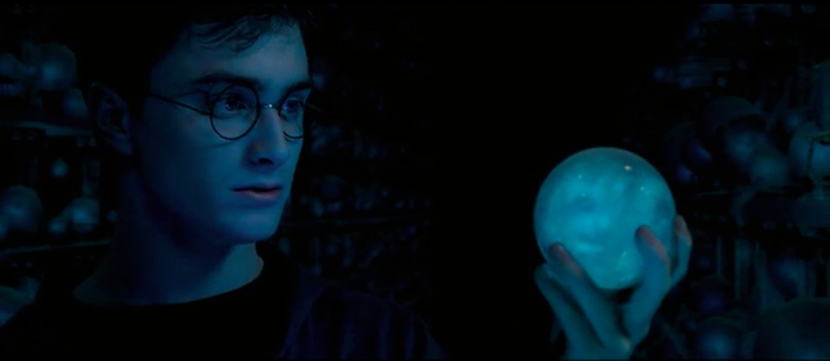 I must mention this one for this reason: this is probably the most prevalent male caricature in Christian science fiction and fantasy. My definition, from last week:
I must mention this one for this reason: this is probably the most prevalent male caricature in Christian science fiction and fantasy. My definition, from last week:
A poor young man, likely orphaned, who according to ancient prophecy must defeat evil and fulfill Destiny.
For that, we can likely thank John Carter (initials, anyone?); Peter, Susan, Edmund, and Lucy from Narnia; and the Harry Potter series. The first started the modern fantasy/sci-fi genre. The second, though, is more influential for Christians, and particularly inspired the “youth from our world/with humble beginnings who is really a king/queen” idea.
Now I must nitpick my original nitpick. I don’t want to see these characters go away. Why not? Because they’re all based ultimately on Jesus, the real youth from our world, but really another, Who had humble beginnings but was truly the prophesied King. Do I want to see His image scoffed at as only a trope? Or for storytellers to be so “original” that they make heroes out of superior men who never had humble beginnings? No way.
At the same time, in some of the Christian speculative novels I’ve read, even newer ones, I keep finding heroes with whom I can’t identify. I can’t easily come alongside the human hero to see myself — as a longtime Christian and attempting “hero” in this world — as his “brother.” Instead I keep finding another man I want to parent.
When will he come to true faith? Doesn’t he get that this world’s version of God wants him to fulfill prophecy? In a world like this, why wouldn’t he want to go fight and be awesome!
Again, please don’t misunderstand: I don’t want these characters gone. Given the power, I would not institute any affirmative-action program that would lock humble-farmboys-destined-for-greatness out of fiction. I do think, however, we could use some diversity.
Yet I’m convinced this resolution lies not in steroid shots to characters, or extra caffeine in authors, but in authors’ personal growth in Christ — going beyond nonfiction tropes into deeper doctrine magic, applied to real life. That will ultimately make real men in our stories — men who may sometimes do nothing, struggle or have emotional needs, act like “bad boys,” act like children, or make choices and Fulfill their Destinies.
Next week: final series thoughts. What are your thoughts now?

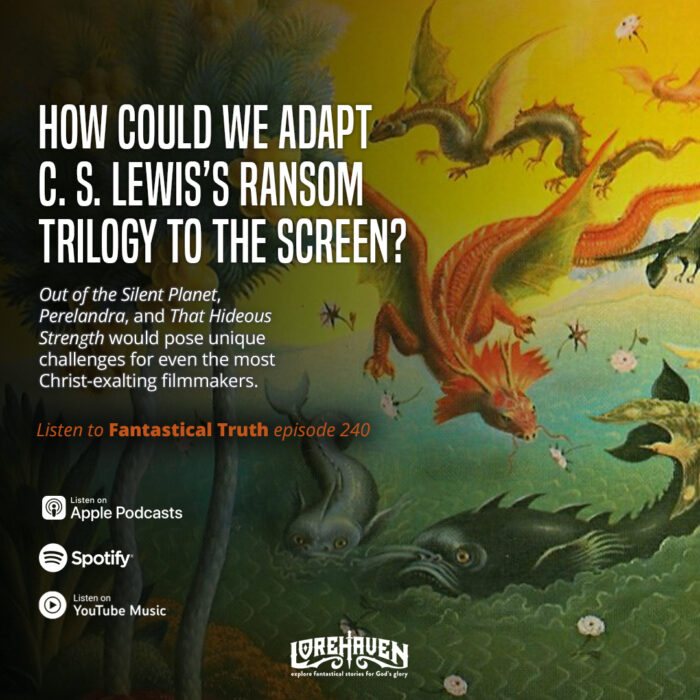
































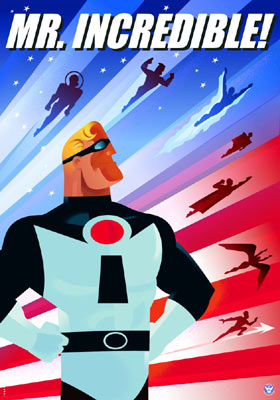


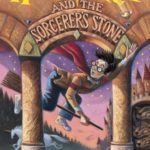
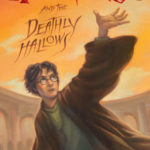


Ugh, I really dislike the bad boy trope. I like my male characters to have least a semblance of honor, and typical bad boys are just looking out for themselves (except for perhaps the lovey-dovey types like Edward Cullen, but I have very little respect for those either). I have a really hard time liking a story where the protagonist is a bad boy. I just can’t root for them, unless they make a HUGE turnaround at some point in the story and become way more self-sacrificing.
I always feel compelled to test my characters against your stereotypes. 😀
I’m not sure my trilogy’s protagonist fits any of these cliches. Hurray!! He IS a fairly poor young man, and orphaned, and helps save an entire world from destruction. But there’s no prophecy, and no apparent destiny. He merely takes his place in a fight that he feels is important, and ends up *being* important. I certainly hope that readers can identify with him, and don’t end up feeling like they need to “parent” him.
However, I’m sure in earlier versions he was The Guy Who Never Notices Women’s Bodies Below Their Necks. Hahaha. I think that was because I was 14 years old and completely oblivious to how the male mind works…
This column cracked me up. Thanks for putting so much thought into the topic, Stephen!
Also, you mentioned Richard Maxwell. I grew up listening to Odyssey, and my main fascination with the character was as a weathervane for an appearance of Dr. Blackgaard. One never appeared without the other.
I do see what you mean about bad boy characters. It’s the whole antihero thing. As a woman, I’ve tried to figure out why people love them so much (especially girls). For one thing, an antihero is usually very deeply developed, giving them that emotional connection to the audience (women crave that). They’re always badass. (Women love an emotional caring badass.) And then if the character is lonely and single? Pff, there goes the fanfiction. (Although I’ve noticed in fanfiction, women forget the badass part and make the character emotional, caring, and lonely, resulting in the Gender-Neutral version of what used to be a great character.)
You’re right about wanting to parent the main character when they act like a kid. Which ones don’t, though, at least at the beginning of the story? It’s the ones who never grow out of it that I have issues with.
From Kessie:
To me, that sounds like how female readers reacted to Tony Stark after his debut in Marvel Comics (and to some extent, that has recurred with the Iron Man film franchise).
It also sounds a lot like “mothering.”
I posted earlier and it got eaten. Let’s see if I remember…
On stock males: The stock female equivalent is usually, ah….yeah. Nevermind.
I think as far as women writing male characters goes….honestly, we don’t always want to know what’s going through the guy’s head in such a scenario (which I don’t remember in Left Behind, but hey). Either way, the trick is usually to distinguish between noticing, being tempted, and, ah, drooling. Girls really don’t want to read the drooling. Probably the simplest solution for a guy who really doesn’t do more than notice is to….have him notice and definitively move on. Third, in an action sequence, it’d be flat out weird for him to stop and pay much attention to what a girl is or isn’t wearing. I mean, come on. “Bad guy’s getting away– oh, cute shirt!”
Yeah…right…
Ironically, of the three examples, I think Stark is an arrogant, womanizing jerkface (who is, thankfully, better in the second movie); Cullen is not attractive (even the book version…Bella does not describe what I’d call attractive) and goes from brooding vampire worried about his soul to “let’s tick off Jake again!”; and I haven’t heard of the third.
More seriously, I heard someone once say that, ultimately, most girls reject the bad boy. Ultimately, the same unpredictable impulses and adrenaline rushes translate into “this guy cannot and will not put down roots, nor can he be depended upon.” The only ones who actually work out are the ones who have something that runs a bit deeper than “I can scale buildings in one leap” and “I’m going to get revenge on the world.”
On antiheroes: I’m always a bit conflicted with these guys so it really falls on the writer’s ability to make me see him as justified in what he’s doing. I’m really not a fan of choosing between two evils. The Count of Monte Cristo took forever for me to warm up to, for example. I can handle dark and misguided; but some of these guys really are the villain, and the story’s antagonist is the actual hero.
A friend of mine who also likes Leverage and I have had this conversation. One of the characters is a hitter, and apparently a lot of women fail to remember that he really is a bad guy. He’s got his moments, but he’s not a good guy. He’s a character you can’t allow to get emotional or ‘soft’ for more than a couple seconds, and it has to be muted, or else you lose him.
Some women are rescuers and think they can save them, I think. Some probably see it as a chance to control. And some probably see it as a chance to have fun without committing. At that point it becomes this weird co-dependency thing (one void of real emotional attachment v. one that’s all about emotional attachment).
Brief tech-support response: how irritating, Kaci. I’m so sorry.
At the same time, I do not know what is causing the comment difficulties. It may be a software problem, or a browser problem. Until it ceases, my suggestion is to install Lazarus, the text-resurrection app for Firefox and Chrome, and/or to copy any comment text before hitting Submit, to prevent needing to re-type all that.
You’re quite the dedicated commentator, Kaci!
I don’t either.
One of the best recent Christian novels I’ve read, Meg Moseley’s When Sparrows Fall, stunned me with its accurate portrayal of How Guys Really Think. It was almost psychic. Never did I feel the narrative description became inappropriate, but hey, you felt a little heat. Just a little. And it added realism, even Christ-exalting joy in what should be more-normal human relationships, to the story.
This should especially be true between characters who are husbands and wives. I am not talking about absurd megachurch-shtick “sex sermon” type material, translated for fictional settings, but God-glorifying recognition of human attraction.
In Iron Man, the story would not be as good as it is without Stark’s behavior — the attack on his convoy, and his change in perspective, would not be as dramatic.
Iron Man 2 suffered a bit because they had to “walk back” some of his “conversion.”
Yet evidently thousands of girls, and grown women, are attracted to this absurdity. How much more evidence do we need that Godless feminism has failed?
And yet you call yourself a Church Brat™. …
After finishing the column, I thought of another and more-famous Bad Boy who finds redemption, or rather, “redeems himself”: Han Solo from Star Wars. To some extent, Han’s alter-ago Indiana Jones (at least in Radiers of the Lost Ark) is also in this category.
Exactly. And all resulting from originally good desires, twisted and corrupted by sin.
The original was much shorter, and I got the “wordpress error” message. No worries.
All megachurches have this issue?
That was actually a point a friend had to sell me on. After I saw the second I appreciated the first more.
I don’t think Bella counts as a feministic character. She starts out okay, but devolves over the course of the books. Course, I still maintain that series is not a romance, and works better without said ‘romance.’ Or did I misunderstand?
I never listened to/saw much of Adventures in Odyssey. I remember Dylan and his immediate family, Whit, and Eugene. And I could describe others but not name them.
Harrison Ford likely had something to do with that. Somehow, Indy and Han got away with it. Hehe. Quite likely it was the redemption arc.
(Next time, can you copy that message and send it to me, Kaci, and/or take a screencap? I’ve never seen it, and that might help isolate whatever is going on.)
No way. I used “megachurch” as an adjective to modify the shtick; it’s the shtick to which I take umbrage, not large churches!
When I pointed out the failure of feminism, what I meant is that readers, if they are properly “schooled,” should have rejected Bella right away as a “placeholder” for the reader, a character who has very passive, wrongly dependent, even male-worshiping attitudes (by all the accounts I’ve read about the series). Seeing as how readers have not done this, despite all the feminism prevalent in society, I conclude feminism has not had nearly the effect for which its activists would have hoped.
Ah! An AiO videos-only Brat. It’s a slightly lower caste, but still within the Church Bratz® family of designer-fashion-doll products.
I still plan, sometime, to write an AiO-nostalgia column. This program was one of my first exposures to speculative ideas. After all, the radio series had pseudo time-travel, holodeck-like technology, variety-show alternate-world imaginings, and even fantasy.
Yes! Yes! I’d love to read your thoughts about AiO. Alas, my interest in in faded shortly after Hal Smith died and the original writers jumped ship (Chuck Bolte and Paul McCusker, aka George Barclay and Philip Glossman, if memory serves.)
I don’t like the newest Whit. And the current “focus family,” the Parkers, really bug me without a definate reason why. The Green Ring arch was better, but a lot of the one-off stories are not that great.
*Sigh* Someday I will learn how you guys do the quote thing (lol). In the meantime, I will do it my way.
However, I’ve also seen him in speculative novels. A prime example: The Guy Who Never Notices Women’s Bodies Below Their Necks. I’m not talking about rubbing-our-faces-in-it-to-be-Gritty lust descriptions here; rather, I’m talking about mentions of even Godly attraction, even to one’s own wife. Some speculative novels avoid this like Andorian plague. I’m looking at you, Left Behind series (which I otherwise still like).
One thing I found hard to write is an honor driven male character, but one that is still a man, and showing that. Men will notice women. And they see below the neck. My editor caught that in my book and said, yeah, he’s a good guy, but in a situation like this, a man is going to notice. Show his reaction.
I’m not a man, so I didn’t catch that in my book. One benefit to having an editor who is different than you.
I still wish they had the edit feature on here. I never seem to get the paragraph spaces right 🙂
More tech support:
From Morgan:
Here’s a possible parallel that I just made up:
Would you notice if a guy was wearing a sharp business suit, or some kind of cologne, or was articulate in his speech? That’s almost an exact parallel. And any temptation does not come along with noticing that, but with what the one who notices then does with it …
I think it makes a character more human if they notice and feel something, but it is what he (or she) does at that split moment with that thought or feeling that makes the difference. Attraction in and of itself is not bad. Or how would most of us end up with a spouse? But controlling, channeling, or squelching attraction when it’s not appropriate, that’s the key.
Dude, you are so funny. Great post.
Too late. 🙂 Splashdown Books put out The Dim Knight in 2010, very much one of those, and hilariously so, in spite of some structural issues.
Yes! Thank you for that. That’s what I was getting at in my Mike Duran response also.
I don’t know about reading, but I like writing bad-boy characters because I get to say what I really think. And do things on the page that I wouldn’t do in real life. Tally-ho. But they have to be real people.
It’s an honesty thing, and probably in good part a rebellion against the churchian female stereotypes I’ve lived with throughout my adult homeschooling-denim-jumper-mom life. Oh yeah? Guess what! I write male main characters and they’re jerks! Stick that in your Sunday bonnet!
Again, a perspective arising from the program-oriented box-stuffing of human beings. I get that troping sells spiritual self-help books, but come on.
I’m totally alternating between “the pile of stuff I don’t want to do” and Specfaith today. Ha.
If I get it, sure. Actually, I wonder if my browser history will return me to that page.
I got about halfway into my reply and realized I probably misunderstood. hehe. Again, I think part of it is that she starts out relatively strong, and by the time she’s completely gone people just want to read “what happens next.”
I don’t even qualify as that. I think I had two – maybe two – videos.
Yeah, I was going to say something similar. The temptation isn’t in noticing. The temptation is letting it drive you to sin (lust). I also think there’s something to be said for the person who realizes they’re crossing a line and stops, too.
It’s like anything else. Being aware you can steal doesn’t make you a thief. Plotting the heist does. A guy noticing a girl doesn’t make him perverted. Where his brain goes after might. (And vice versa.)
Burnett, you just became my hero for mentioning, of all the people from the dim past that was my childhood, my all-time favorite Odyssey character, Richard Maxwell.
I always wished the writers would bring him back. (Okay, end of church-brat freak-out moment)
… So I wasn’t alone, huh? No one else in my family was a fan of him ….
Hi all. A few points based upon the article on comments so far. I’m on another computer as mine is in need of repair, so I need to rush and be brief.
First of all, great post, Stephen. 🙂
Secondly, I don’t think on the issue of Tony’s character arc in Iron Man 2, that it was walked back as much as portrayed realistically. Even with his changes, he still likes to drink and stare at women. He still did the honorable fight bad guys, and right his past wrongs schtick. He simply wanted to party hardy as long as he could, as he thought he was dying. Somewhat of a regression of his personal behavior, but really just a realistic way that many deal with stress (albeit badly and immorally). Again, his central mission as Iron Man didn’t change any, for all of that.
About the way that men think, I really do believe that many folks are a tad too uptight in what they expect of their reading. Not that morality is not important, but this is fiction, not that level of fantasy of making men into angels. Men will look, they do look in real life. The key is whether they do so unconsciously, or leer. And if they do leer or ogle, do they ever change.
About prophecies, I think the most unique take on it was in The Wheel of Time books by the late Robert Jordan. They are not “Christian fantasy”, though Jordan was a Christian. They take place in a Buddhist/Hindu world of death and rebirth like in The Last Airbender.
The unique “take” comes in two parts. First of all, Rand al-Thor (The Dragon Reborn) and his two friends Mat Cauthon and Perrin Aybarra (also mentioned in the Kaerathon Cycle or prophecies of the Dragon) are seemingly placed where they are by the Pattern the Creator put in place, to thwart the bad guys finding them. It seems the Creator and the Pattern are genre-savvy, and the Dark One and his agents are not.
The second part is that (upon finding out he is the “Chosen One”) Rand reads and memorizes large portions of, the prophecies and essentially tries to use them as a type of “roadmap” for his path towards the Last Battle. That idea of the hero using prophecy as a guide book and trying to figure out how to fulfill it, was a really shrewd plot that I haven’t seen before.
On the part of the troops, they act basically baddie versions of red shirts. It’s the cultural notion that men shouldn’t harm women if they can help it that makes females be Big Bads, but almost never ordinary mooks.
Like with women, I think the central point is not having men be men. They are seen as only tough and gruff, or “sensitive” and weak. Just like a woman must be either feminine or tough warriors. That puzzled me because the divide people get this (falsely) from is vast misinterpretation of Tolkien. Eowyn was a warrior, but was still very beautiful. Arwen was probably tough as any other Elf Maiden, but chose not to fight. So both were beautiful, tough, and otherwise well-rounded characters. They were decidedly not the caricatures in much of literature today.
Those are my thoughts, for what they are worth. God bless y’all.
To clarify about why the Wheel of Time characters are unique, in that they are “farmboys” from a backwoods town. And I mean faaaarrrrrr backwoods.
Stephen, I want edit back too. 😉
They are placed there on purpose to hide them, is how it is unique, I mean. Gahh! I want edit and delete back!!! 😛
Stephen, please tell me you were just doing a “sighing” sound by “hoo-ahhh“. The Army says HOOAH, no hyphenation. It’s the Jarheads that have hyphens to help them pronounce the long words they can’t handle. 😉 😛
Man-child? Does the Eleventh Doctor count? Or maybe Four? On the other hand, he also has the dark moments.
Though not in Speculative fiction, Rick Castle of the titular tv show, would count as a classic case of a “man-child”.